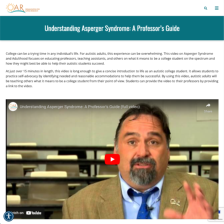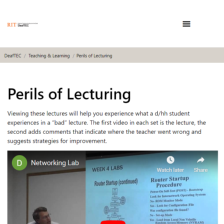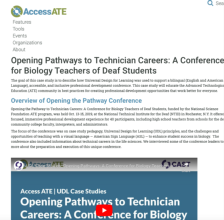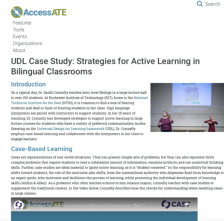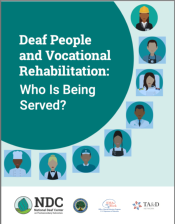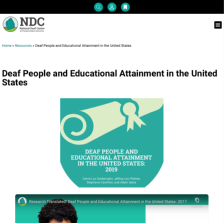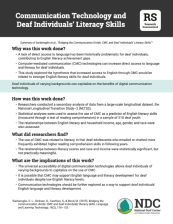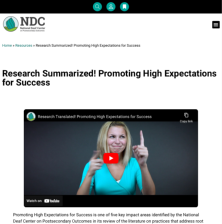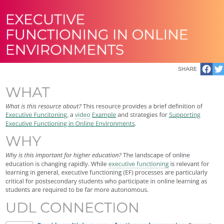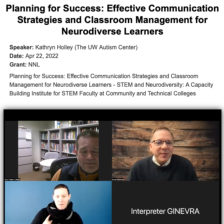Search Results
Searched for: Subject is Disabilities
or Subject begins with Disabilities
or Resource Type begins with Audio/Visual
or Subject begins with Disabilities
or Resource Type begins with Audio/Visual
This video, published by the Organization for Autism Research, provides guidance for college level educators that will be teaching students with Asperger's Syndrome. The variety of ways that adults present with Asperger's syndrome is discussed as well as strategies for students and educators to manage both the academic and social experience of...
This DeafTEC webpage includes videos intended to provide examples of "bad" lectures for hard of hearing and deaf students. "Viewing these lectures will help you experience what a deaf or hard-of-hearing student experiences in a “bad” lecture." The videos include a network lab and an art lecture. Two additional videos are included that "add[] ...
This case study explores the Opening the Pathway to Technician Careers Conference, which engaged biology teachers of Deaf students in 2019. The case study describes how Universal Design for Learning (UDL) can be used to support a bilingual (English and American Sign Language), accessible, and inclusive professional development conference. Best...
This case study explores case-based learning strategies for active learning in bilingual classrooms with Deaf and hearing students. A five-part video series is provided. In part one, Dr. Sandi Connelly describes how she checks for understanding when teaching cases in large classes. In part two, Connelly discusses technology and digital media, and...
This 14-page report, published by the National Deaf Center on Postsecondary Outcomes, provides an analysis of the characteristics of deaf people who applied for Vocational Rehabilitation (VR) services. VR services are designed to assist individuals with disabilities in pursuing employment, providing resources such as career counseling and...
This resource, from the National Deaf Center on Postsecondary Outcomes, provides a report and video that explore data on educational attainment in the United States for Deaf individuals. The 16-page report was created by Carrie Lou Garberoglio, Jeffrey Levi Palmer, Stephanie Cawthon, and Adam Sales. In the report, key findings, data, and a research...
This resource, from the National Deaf Center on Postsecondary Outcomes, provides two documents and a video that explore research on the effects of increased access to English through computer-mediated communication (CMC) on Deaf individuals' language and literacy skills. The first document is a summary of research goals, methods, findings, and...
This resource, from the National Deaf Center on Postsecondary Outcomes, provides a document and video that explore the importance of promoting high expectations for Deaf individuals' postsecondary success. The 7-page document summarizes research on strength-based approaches, postsecondary planning processes, role models, and parent/teacher roles in ...
This webpage, made available by CAST, Inc., provides information on how educators can support executive functioning in online learning environments. Executive functioning is defined as "a term used to describe a set of cognitive capabilities that influence behaviors" that includes:
setting appropriate goals
planning and organizing
developing...
In this webinar from DO-IT, Kathryn Holley and Patti Matestic explore how educators can support neurodiverse students in the classroom. Holley and Matestic highlight support strategies, how educators can set expectations, communication, and how educators can manage disruptions. Examples of neurodiversity, functioning labels, and competing needs in...
Languagev
Audiencev
Formatv
Content Licensev
Accessibility Featurev
Accessibility Hazardv
Accessibility Controlv
Access Modev
Access Mode Sufficientv
Resource Typeʌ
- ☒ Audio/Visual
- ☐ Collection
- ☐ Instructional Material
- ☐ Professional Development
- ☐ Reference Material
- ☐ Service
- ☐ Tool
Subjectʌ
- ☐ Access/Accommodations
- ☐ Assistive technologies
- ☐ Communication
- ☒ Disabilities
- ☐ Hearing
- ☐ Intellectual, cognitive and learning differences
- ☐ Invisible disabilities, Living with
- ☐ Mental health and psychosocial well-being
- ☐ Mobility limitations and physical variances
- ☐ Neurological and neurodevelopmental differences
- ☐ Vision
- ☐ Education
- ☐ Employment
- ☐ Legal
